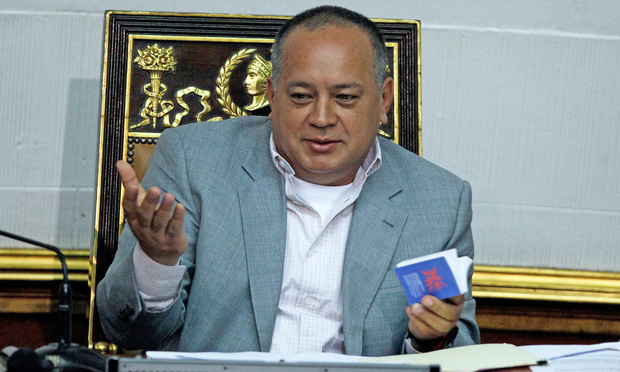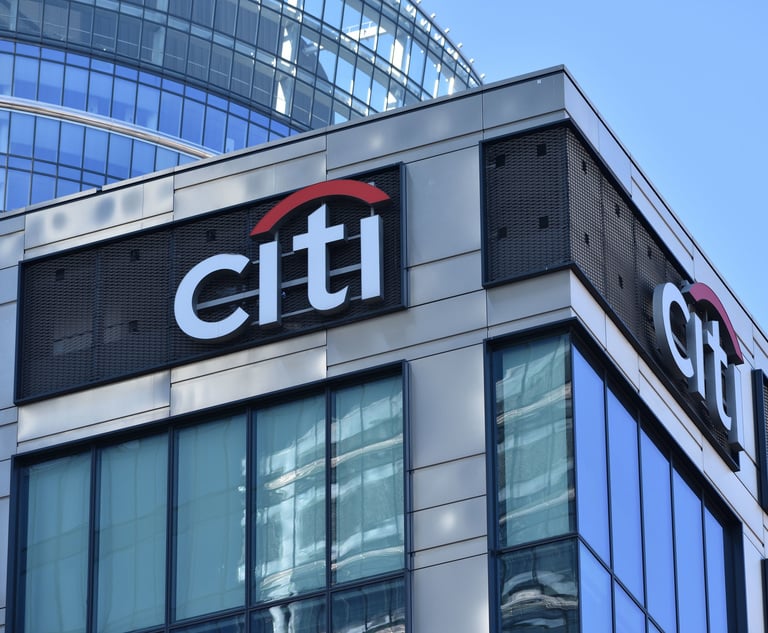Second Circuit Affirms Dismissal of Libel Suit by Top Venezuelan Politician Over WSJ Report
A 2015 article by The Wall Street Journal said Diosdado Cabello, described as the second-most powerful man in Venezuela, was being investigated by U.S. officials for turning the country into a global hub for cocaine trafficking and money laundering.
April 25, 2018 at 01:04 PM
3 minute read
 Diosdado Cabello. Photo Credit: Fernando Llano/AP Photo
Diosdado Cabello. Photo Credit: Fernando Llano/AP Photo “[P]atently unbelievable”—that's what the U.S. Court of Appeals for the Second Circuit called the libel theory offered up by Diosdado Cabello, formerly the second-most powerful politician in Venezuela and one of the heads of the late President Hugo Chavez's political party, who claimed there was simply no way a U.S. government official could have leaked information about a Department of Justice drug investigation into Cabello.
According to the 2015 article, titled “Venezuelan Officials Suspected of Turning Country into Global Cocaine Hub,” cited more than a dozen unnamed sources who said an elite unit at the U.S. Drug Enforcement Administration was building a case against Cabello and others in the Venezuelan government. Cabello was called a leading target in the investigation.
In 2016, Cabello sued The Wall Street Journal's parent company for libel in the U.S. District Court for the Southern District of New York. U.S. District Judge Katherine Forrest dismissed the suit, after allowing an amended complaint to be filed, after Cabello failed to show how statements at issue were false, and failed to adequately plead actual malice.
The panel, composed of Circuit Judges Ralph Winter, Rosemary Pooler and Debra Ann Livingston, said in an opinion that regardless of the falsity issue, the requirement of actual malice failed on its face. Cabello claimed the WSJ's unnamed sources must have been fictitious, and, if the claims weren't made-up, then the sources were not properly vetted. Cabello's theory stated that, while “historic landmark journalism” has clearly benefited from information leaked by anonymous government sources, Cabello's case presented “nothing inherently controversial,” and so any leaking about an investigation “can serve no noble cause,” and should have caused WSJ to “question the reliability of its sources (to the extent such sources actually exist).”
As the panel noted, using anonymous sources does not alone support actual malice, requiring other allegations to support the claim—which the panel noted Cabello failed to do.
“His general theory—that any investigation into his activities simply could not have been leaked by government authorities—is patently unbelievable,” the panel wrote “Indeed, even on his own theory of landmark journalism, leaking on an investigation into Cabello-Rondon would be possible, or even probable.”
Cabello's stature at the time—head of Venezuela's national assembly—made anything involving him naturally controversial, which would give sources incentive to potentially leak.
“Accordingly, the allegations that leaking on this topic simply could not have happened is illogical even by the standard that Cabello-Rondon himself proposes in his complaint,” the panel stated.
In a statement, a spokesman for Dow Jones said the company was gratified by the court's decision to reject Cabello's claims.
Davis Wright Tremaine partner Katherine Bolger represented the Journal's parent company, Dow Jones, on the appeal.
Cabello's legal team was led by Diaz Reus partner Xingjian Zhao. He did not respond to a request for comment.
This content has been archived. It is available through our partners, LexisNexis® and Bloomberg Law.
To view this content, please continue to their sites.
Not a Lexis Subscriber?
Subscribe Now
Not a Bloomberg Law Subscriber?
Subscribe Now
NOT FOR REPRINT
© 2025 ALM Global, LLC, All Rights Reserved. Request academic re-use from www.copyright.com. All other uses, submit a request to [email protected]. For more information visit Asset & Logo Licensing.
You Might Like
View All
New York-Based Skadden Team Joins White & Case Group in Mexico City for Citigroup Demerger

Bankruptcy Judge Clears Path for Recovery in High-Profile Crypto Failure
3 minute read
US Judge Dismisses Lawsuit Brought Under NYC Gender Violence Law, Ruling Claims Barred Under State Measure
Trending Stories
- 1We the People?
- 2New York-Based Skadden Team Joins White & Case Group in Mexico City for Citigroup Demerger
- 3No Two Wildfires Alike: Lawyers Take Different Legal Strategies in California
- 4Poop-Themed Dog Toy OK as Parody, but Still Tarnished Jack Daniel’s Brand, Court Says
- 5Meet the New President of NY's Association of Trial Court Jurists
Who Got The Work
J. Brugh Lower of Gibbons has entered an appearance for industrial equipment supplier Devco Corporation in a pending trademark infringement lawsuit. The suit, accusing the defendant of selling knock-off Graco products, was filed Dec. 18 in New Jersey District Court by Rivkin Radler on behalf of Graco Inc. and Graco Minnesota. The case, assigned to U.S. District Judge Zahid N. Quraishi, is 3:24-cv-11294, Graco Inc. et al v. Devco Corporation.
Who Got The Work
Rebecca Maller-Stein and Kent A. Yalowitz of Arnold & Porter Kaye Scholer have entered their appearances for Hanaco Venture Capital and its executives, Lior Prosor and David Frankel, in a pending securities lawsuit. The action, filed on Dec. 24 in New York Southern District Court by Zell, Aron & Co. on behalf of Goldeneye Advisors, accuses the defendants of negligently and fraudulently managing the plaintiff's $1 million investment. The case, assigned to U.S. District Judge Vernon S. Broderick, is 1:24-cv-09918, Goldeneye Advisors, LLC v. Hanaco Venture Capital, Ltd. et al.
Who Got The Work
Attorneys from A&O Shearman has stepped in as defense counsel for Toronto-Dominion Bank and other defendants in a pending securities class action. The suit, filed Dec. 11 in New York Southern District Court by Bleichmar Fonti & Auld, accuses the defendants of concealing the bank's 'pervasive' deficiencies in regards to its compliance with the Bank Secrecy Act and the quality of its anti-money laundering controls. The case, assigned to U.S. District Judge Arun Subramanian, is 1:24-cv-09445, Gonzalez v. The Toronto-Dominion Bank et al.
Who Got The Work
Crown Castle International, a Pennsylvania company providing shared communications infrastructure, has turned to Luke D. Wolf of Gordon Rees Scully Mansukhani to fend off a pending breach-of-contract lawsuit. The court action, filed Nov. 25 in Michigan Eastern District Court by Hooper Hathaway PC on behalf of The Town Residences LLC, accuses Crown Castle of failing to transfer approximately $30,000 in utility payments from T-Mobile in breach of a roof-top lease and assignment agreement. The case, assigned to U.S. District Judge Susan K. Declercq, is 2:24-cv-13131, The Town Residences LLC v. T-Mobile US, Inc. et al.
Who Got The Work
Wilfred P. Coronato and Daniel M. Schwartz of McCarter & English have stepped in as defense counsel to Electrolux Home Products Inc. in a pending product liability lawsuit. The court action, filed Nov. 26 in New York Eastern District Court by Poulos Lopiccolo PC and Nagel Rice LLP on behalf of David Stern, alleges that the defendant's refrigerators’ drawers and shelving repeatedly break and fall apart within months after purchase. The case, assigned to U.S. District Judge Joan M. Azrack, is 2:24-cv-08204, Stern v. Electrolux Home Products, Inc.
Featured Firms
Law Offices of Gary Martin Hays & Associates, P.C.
(470) 294-1674
Law Offices of Mark E. Salomone
(857) 444-6468
Smith & Hassler
(713) 739-1250







